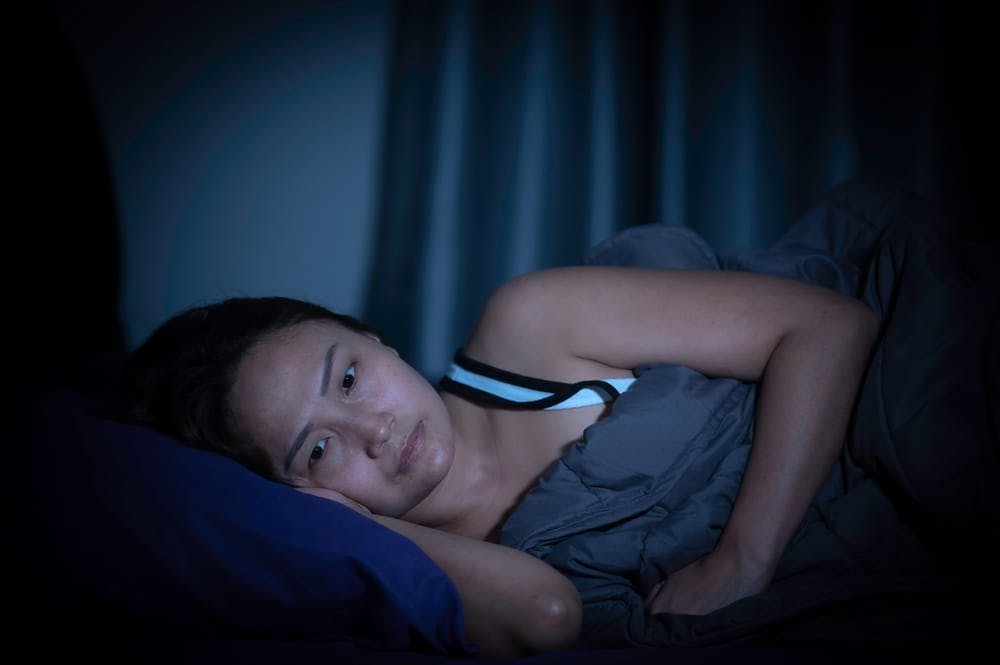
Does the thought of not being able to sleep fill you with dread and worry? You could be experiencing sleep anxiety
We all have an awareness of how important sleep is, not only for our physical health but for our mental health, too. Getting enough sleep can be what sets us up for a successful day. It helps to stabilise our moods, keeps us alert, and lays a foundation for resiliency. So, when you’re struggling to sleep, it’s understandable that that can come with some stress.
Sleep anxiety describes anxiety around not being able to, or struggling to, fall asleep. You may feel overwhelmed, irritable, restless – and, of course, anxious. All these feelings may inevitably go on to make falling asleep even harder, trapping you in a vicious cycle.
Those with preexisting mental health problems – such as anxiety disorders, depression, PTSD, addiction, and bipolar disorder – are more likely to experience some form of sleep disruption, whether that be struggling to fall asleep or waking up regularly in the night. On the other side, a condition such as insomnia, which is characterised by sleep problems that last for at least three months, can lead to anxiety throughout the day as you worry about falling asleep at night.
Although less common, another element of sleep anxiety is fear of what may happen when you fall asleep. This is referred to as ‘somniphobia’ – an intense fear of sleep – and may affect those who have experienced problems such as nightmares, sleep paralysis, or traumatic events around sleep.
So, wherever you fall on the spectrum of sleep anxiety, what options are available to you?
Speaking to your GP
If sleep anxiety is impacting your daily life and having a negative effect on your overall health and wellbeing, your first step should be to your GP. They may be able to support you with referrals, whether that be to a mental health professional, for a sleep study, or to have a conversation about medication.
Cognitive behavioural therapy (CBT)
During cognitive behavioural therapy, the therapist will guide you to identify and address the anxiety that you feel around sleep. They will share tools and resources for challenging distressing thoughts that you may have, and breaking out of thought patterns.
Eye movement desensitisation and reprocessing (EMDR)
EMDR is a form of therapy that is particularly helpful for those who have experienced traumatic events. The aim of EMDR is to support you in processing trauma as you recall events while being stimulated by rhythmic movement. For those who experience sleep anxiety in relation to trauma, EMDR can provide an effective option.
Adjusting your diet and lifestyle
Taking a look at your diet and lifestyle is a good first step, as you may be able to make small but effective changes very quickly. For example, you may want to take a look at your caffeine intake and refrain from drinking caffeinated beverages – including coffee, tea, energy drinks and soft drinks – after 3 PM. A balanced diet throughout the day and refraining from eating heavy meals late at night can also improve your ability to sleep at night.
Light exercise not only helps to regulate the hormones that we need to fall asleep, but can also help to reduce stress and anxiety generally. This could involve going on walks, yoga, pilates, swimming, jogging, or any other form of exercise that you enjoy.
You may also want to take a look at your screen time and reduce the amount of blue light you are exposed to in the hour leading up to going to bed. Instead, you could try to fill this time with calming activities such as gentle stretching, reading, listening to music or a podcast, or chatting about your day with loved ones.
Self-help
Self-help tools can have a great impact on your wellbeing, and there are a number of ways you may wish to use them to tackle sleep anxiety.
Journaling before bed enables you to get all the thoughts that may be buzzing around your brain out on paper, where you may be able to take more of a logical approach to them. You may also be able to uncover thoughts and feelings that weren’t immediately apparent to you.
Mindfulness is something that can also be effectively used to address anxiety. If you are new to mindfulness practices, you may wish to follow some guided sessions – and you can find countless free options on YouTube and Spotify.
As is so often the case, there’s no quick fix for sleep anxiety. But, with time, and the right support for you, you can take back control.

